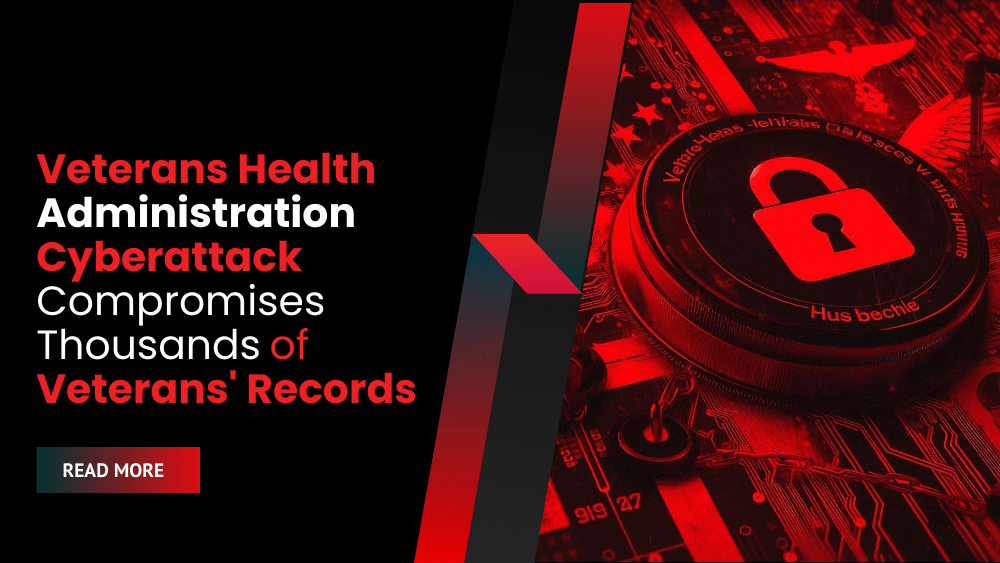A Major Data Breach at Veterans Health Administration Impacts Thousands
The Veterans Health Administration (VHA) has confirmed a significant cybersecurity incident resulting in the potential exposure of sensitive personal information belonging to thousands of veterans. This Veterans Health Administration cyberattack highlights critical vulnerabilities in the healthcare system’s data security infrastructure.
The breach, discovered on an external server managed by a contracted medical transcription vendor, DBP, Inc., affected 2,302 veterans across multiple VA healthcare systems. The VHA has confirmed that the compromised data may include veterans’ full names, medical record information, and social security numbers.
While the VHA assures the public that the attack “did not affect any medical record information in the VA electronic health record,” the potential for identity theft and other forms of fraud remains a significant concern.
Technical Details of the Veterans Health Administration Cyberattack
The compromised server, managed by DBP, Inc., a contracted medical transcription vendor, was the target of the malicious cyberattack. The VHA’s investigation determined that the server was “locked down,” or encrypted, but that data was “potentially copied by the offending malicious party.”
This suggests a sophisticated attack that bypassed security measures. The VHA swiftly responded by shutting down and disconnecting the server from the internet to prevent further data breaches.
Impact and Response to the Veterans Health Administration Cyberattack
The Veterans Health Administration cyberattack impacted veterans across several VA healthcare systems. The affected systems and the number of veterans impacted include:
- 386 veterans from VA Boston Healthcare System
- 37 veterans from VA Connecticut Healthcare System
- 144 veterans from VA Togus Healthcare System
- 25 veterans from Baltimore VA Medical Center
- 1,069 veterans from VA Amarillo Healthcare System
- 616 veterans from VA Minneapolis Healthcare System
This widespread impact necessitates a comprehensive response from the VHA. The agency is sending “Privacy Notification Letters” to all 2,300 affected veterans, detailing the specific information potentially compromised. A dedicated hotline, 1-844-838-5433, has been established to address veterans’ questions and concerns. Calls will be returned by Privacy Officers within two business days. The VHA’s proactive communication and support are essential in mitigating the negative impact on affected veterans.
Preventing Future Veterans Health Administration Cyberattacks
Strengthening cybersecurity infrastructure is paramount to protecting sensitive patient data. This includes regular security audits, employee training on cybersecurity best practices, and the implementation of advanced security technologies.
Furthermore, rigorous vetting of third-party vendors is crucial to ensure that contracted services meet the highest security standards. The VHA and its contractors must prioritize continuous improvement in cybersecurity measures to prevent future data breaches and protect the privacy and security of veterans’ information. The incident also highlights the need for increased transparency and communication with veterans regarding data security practices.









